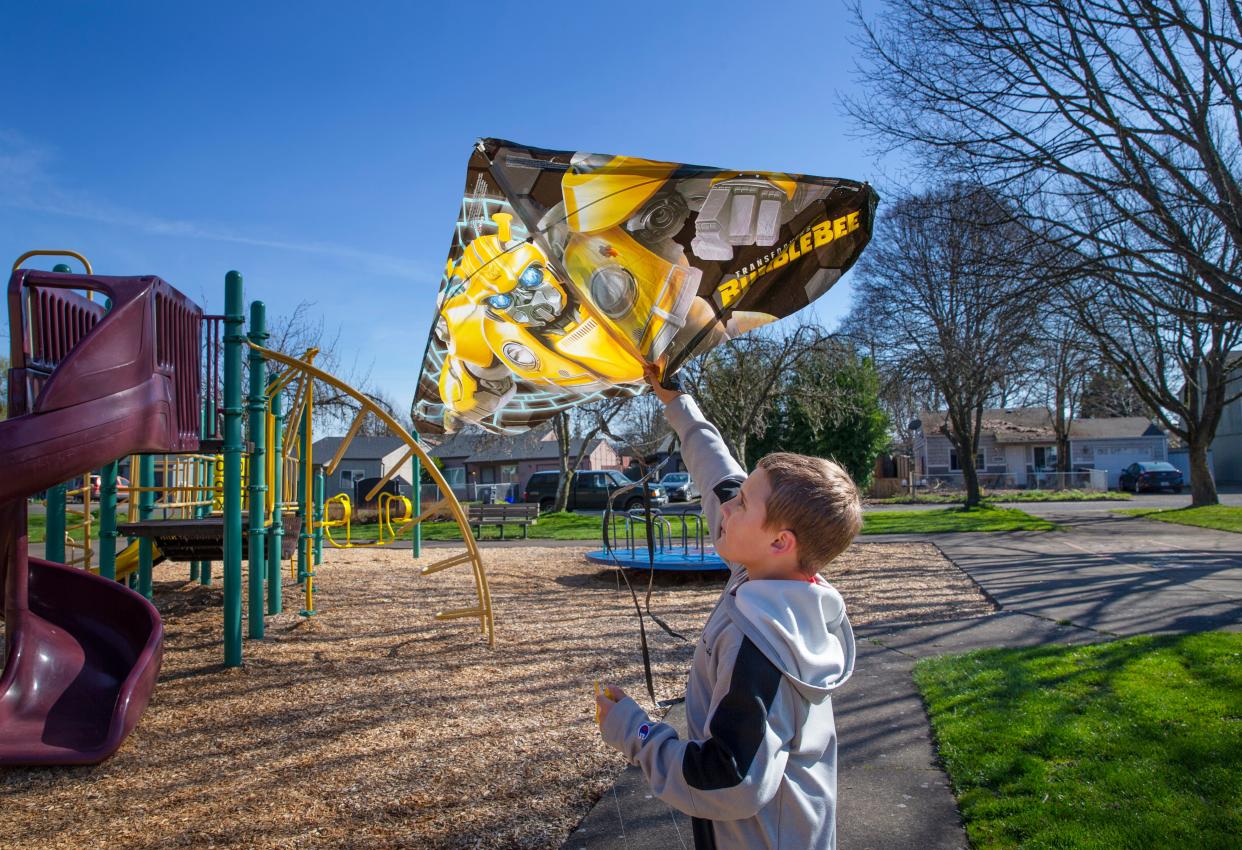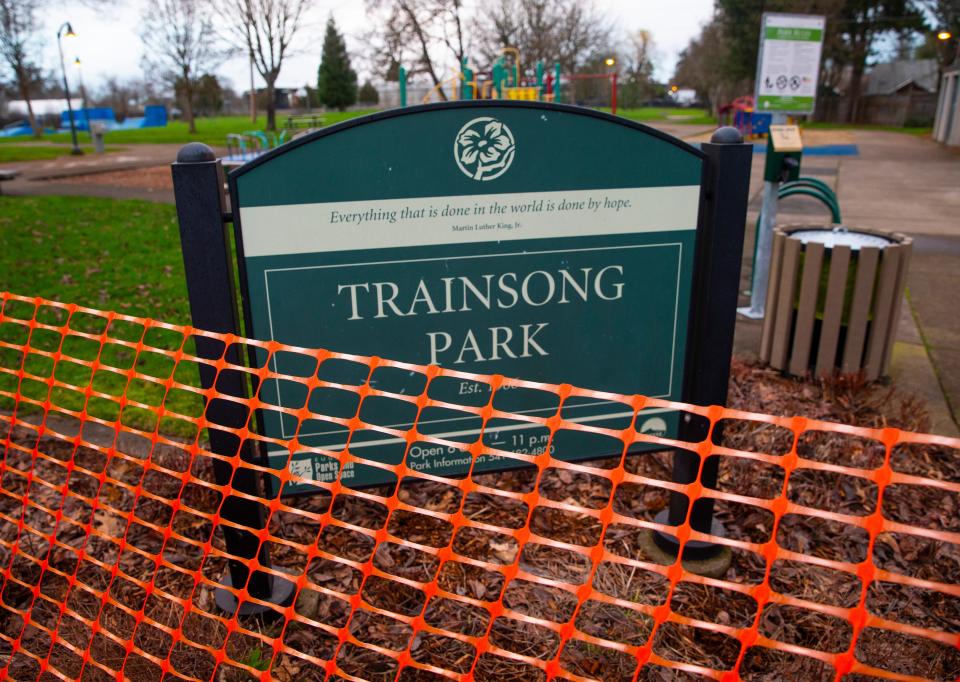Eugene receives $1.5 million grant from EPA for soil remediation at Trainsong Park

A Eugene park once forced to close because of dioxin contamination of the soil attributed to the J.H. Baxter & Co. wood processing facility is getting a hefty dose of federal funding for cleanup.
After soil tests led by the Department of Environmental Quality in 2021 found a concerning level of carcinogenic dioxins at Trainsong Park in west Eugene, the park closed in mid-January of 2022. It was partially reopened in February of 2022 to allow access to paved or sand-covered areas that are less likely to expose visitors, particularly children under six, to dioxins, but the rest of the park is still closed.
Remediation work at the park is necessary to remove the toxin-laden soil. To help support the City of Eugene in its remediation efforts, the U.S. Environmental Protection Agency will provide the city with $1.526 million in the form of a Brownfield Cleanup Grant to be awarded upon completion of the final application step. The grant will be used to replace much of the park’s soil, to develop a public involvement plan and to conduct community engagement activities.
Dioxins are a group of chemicals typically formed during industrial processes and can also be generated when organic materials are burned. The DEQ’s report on locally located dioxins in early 2023 identified seven houses near the former J.H. Baxter & Co. wood processing facility with elevated levels of dioxins in their soils due to their proximity to the plant. The J.H. Baxter & Co. plant has since been decommissioned and the dioxin contamination at Trainsong Park is unrelated to the former plant’s presence about a mile from the park.
Agency agreements are expected to be finalized by December of 2024 with construction anticipated to begin in mid- to late-summer of 2025. It is expected to take three to six months for the project to be completed.
Emily Proudfoot, a landscape architect with the city, shared how it feels to receive funding that will support valuable remediation work to support a community deserving of safe parks.
“We are so grateful for having been prioritized for such a significant amount of funding for the project. It is exciting to know we are close to moving forward with this important remediation work and get this park opened entirely to the community,” Proudfoot said.
“It is a point of livability to ensure all parks in every area of Eugene are safe for families to visit. We appreciate the partnership of Trainsong neighbors who offered feedback on this project both in the past and in the future.”
As for the public involvement plan and community engagement activities portion of this commitment, Marion Suitor Barnes, public affairs manager for the city of Eugene’s public works department, said these events will aim to keep community members updated on happenings related to this work.
“The goal of the public involvement planning and outreach program component of the work is to continue to keep neighbors and stakeholders informed of actions being taken to resolve and clean up Trainsong Park, along with scheduling and progress of the work,” Suitor Barnes said.
“Education, community feedback and design for future park improvements will all be a part of the discussions as we move forward with the project later this year.”

Suitor Barnes said that several rounds of testing and historical research have occurred in an attempt to identify the source of dioxins in soil at Trainsong Park but that these efforts haven’t located where the toxins came from. Despite the source of pollution remaining elusive, she said the city is not anticipating the need for additional remediation down the line once this project is completed.
“This lack of an identifiable responsible party was also helpful in the City being eligible for the EPA Brownfield grant funds given the unexpected and high costs of clean up,” Suitor Barnes said.
“Multiple rounds of study and testing have been conducted across the park site, and the areas that tested higher for dioxin have been identified. We do not expect the emergence of additional contaminated areas.”
In the meantime, visitors to Trainsong Park can still play basketball, get active at the playground and go skating.
Hannarose McGuinness is The Register-Guard’s growth and development reporter. Contact her at 541-844-9859 or hmcguinness@registerguard.com
This article originally appeared on Register-Guard: Eugene park gets $1.5M for remediation as part of J.H. Baxter cleanup

